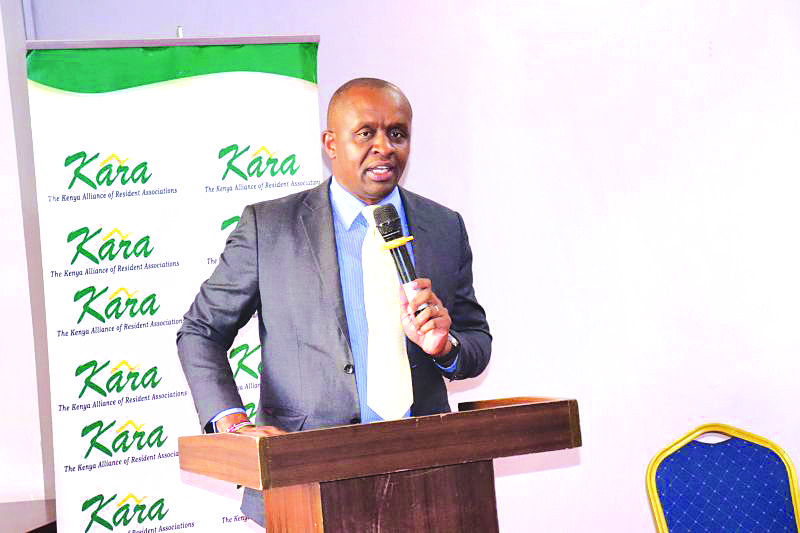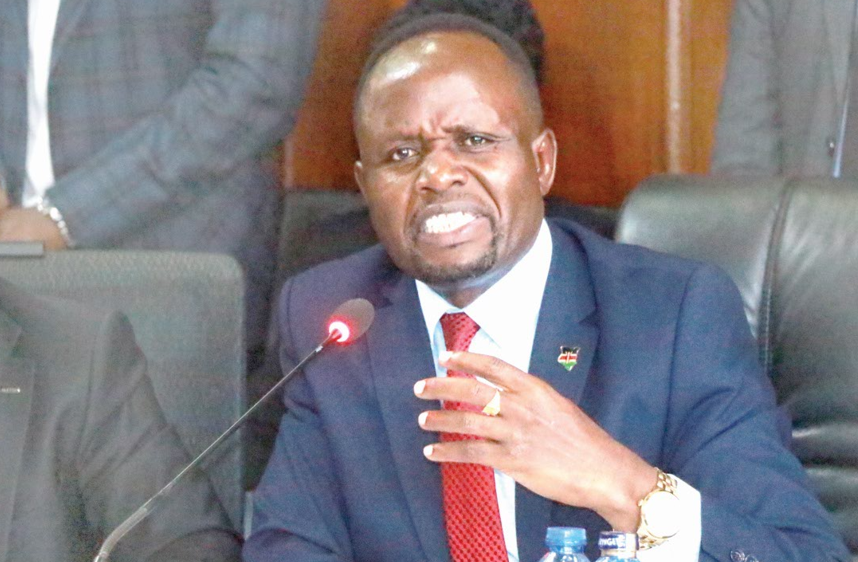Residents association launches handbook on climate change data

Despite the growing urgency of climate change, many Kenyans remain unaware of its implications. The primary culprit? A significant lack of information.
To address this gap and inspire citizen action, the Kenya Alliance for Resident Associations (KARA) has unveiled a comprehensive Citizen Handbook on Climate Change.
The handbook aims at demystifying complex climate information, making it accessible and actionable for the general public.
“The main purpose of this book is to tell the climate change story from a scientific to a social reality. It also hopes to fight misinformation, communicate local and not globally, develop new climate narratives, and connect with what our audience cares about,” said Henry Ochieng, the KARA CEO.
Global warming
The handbook extensively covers the science of global warming, explaining the rise in global temperatures in detail, with particular emphasis on human activities such as widespread fossil fuel use that releases more carbon dioxide into the atmosphere.
It details activities like transportation (aircraft, ships, vehicles, trains), manufacturing, oil drilling, waste disposal, agriculture, and energy generation contributing to negative effects. Additionally, it addresses the roles of deforestation, industry, forest fires, energy consumption, and cooking in exacerbating temperatures.
Detailed information
It also focuses on the specific effects of climate change on Kenya, from water supply to wildlife and livestock, tree cover to food production providing detailed information on specific challenges caused by global warming, including impacts on agriculture and diminishing water supplies.
“The handbook we are launching today is more than just a book, it is a tool for empowerment and action. It seeks to empower every citizen with knowledge and practical steps to contribute meaningfully to the fight against climate change. Whether you are a student, parent, business owner, or policymaker, this handbook equips you with information and resources to make informed decisions and take concrete actions,” said Richard Nyaga, Chairman of the Association, at the inaugural event.
KARA hopes that armed with information, individuals will take action to reduce local contributions to greenhouse gasses heating the environment. They also aim to educate Kenyans on responding to climate change effects such as droughts, floods, erratic weather, and wetland damage.
According to Ochieng, climate change is not just an environmental issue, it is a multifaceted crisis affecting health, agriculture, infrastructure, and the economy. However, many Kenyans do not fully grasp these impacts due to limited access to relevant information. Without understanding the stakes, the motivation to take action remains low.
“Climate change presents one of the greatest challenges of our time. Its impacts are profound, affecting our environment, economies, and most importantly, the well-being of every living being on this planet. It is a challenge that demands urgent and concerted action from all of us as individuals, communities, and nations,” declared.
According to Jim Oduor, Executive Director of Climate Care Africa, a recent study they did showed that though there is a high level of awareness of climate change among Kenyans, however, only a small proportion acknowledges its seriousness and recognizes that there are things, which they could personally do to reduce impacts. The understanding is not deep and personal concern is relatively low.
“Most respondents felt that they were not very informed about matters concerning climate change and made a strong call for more information, more public awareness a great percentage are ready to learn and receive information regarding climate change adaptation and mitigation,” said Oduor.
According to him, the handbook comes at an opportune time as it explains the impact of citizens’ actions or inactions on climate change, how citizens can be involved in climate-friendly and environmental conservation activities, and where to get information on climate change.










